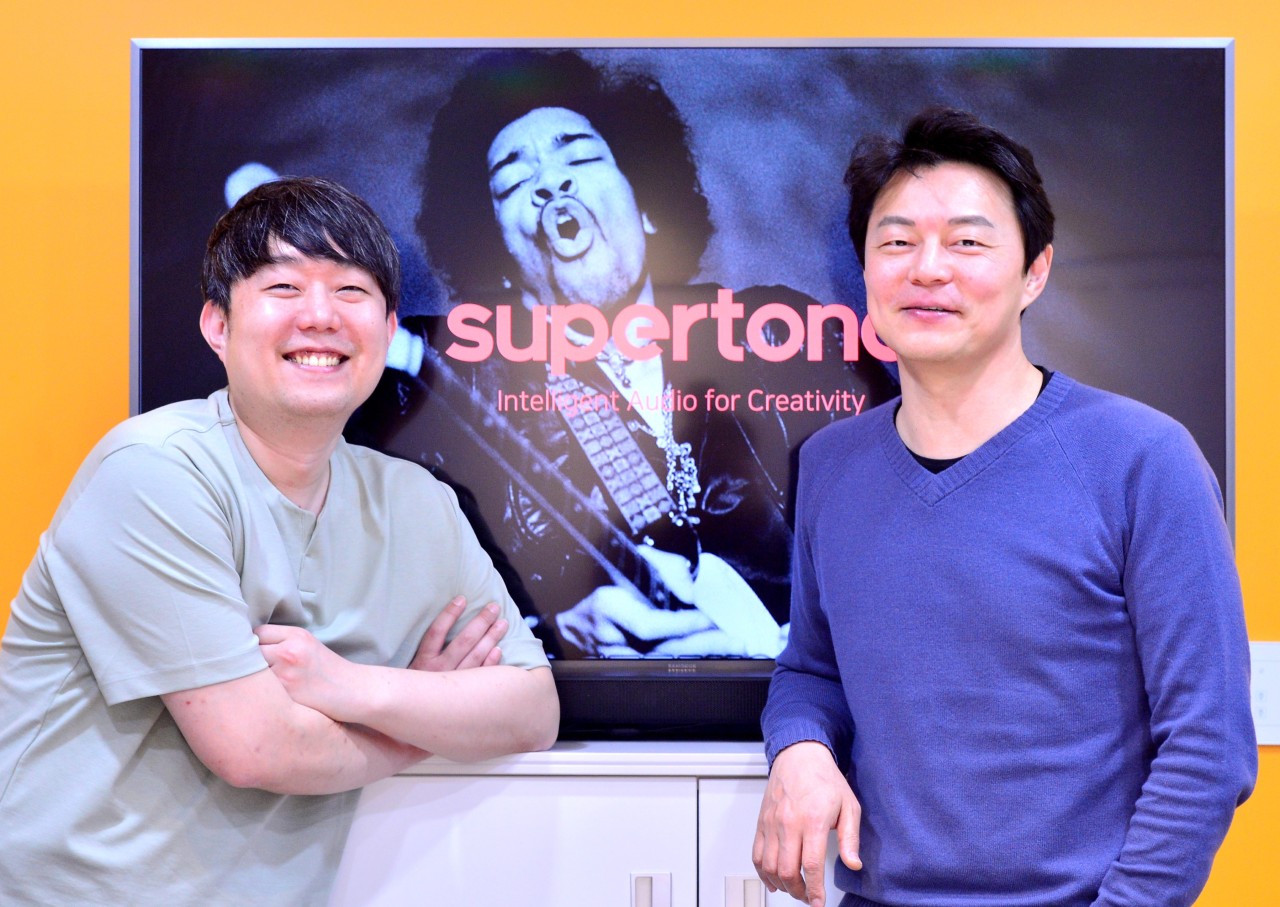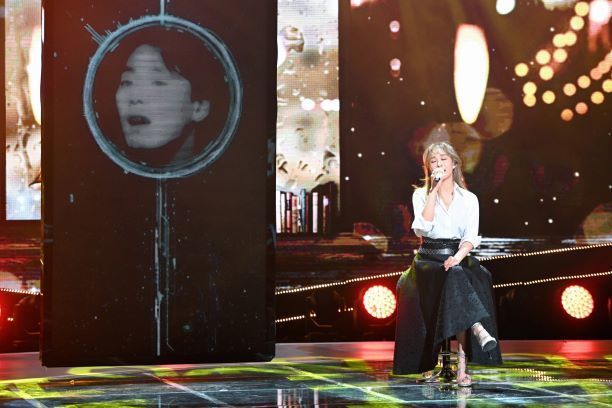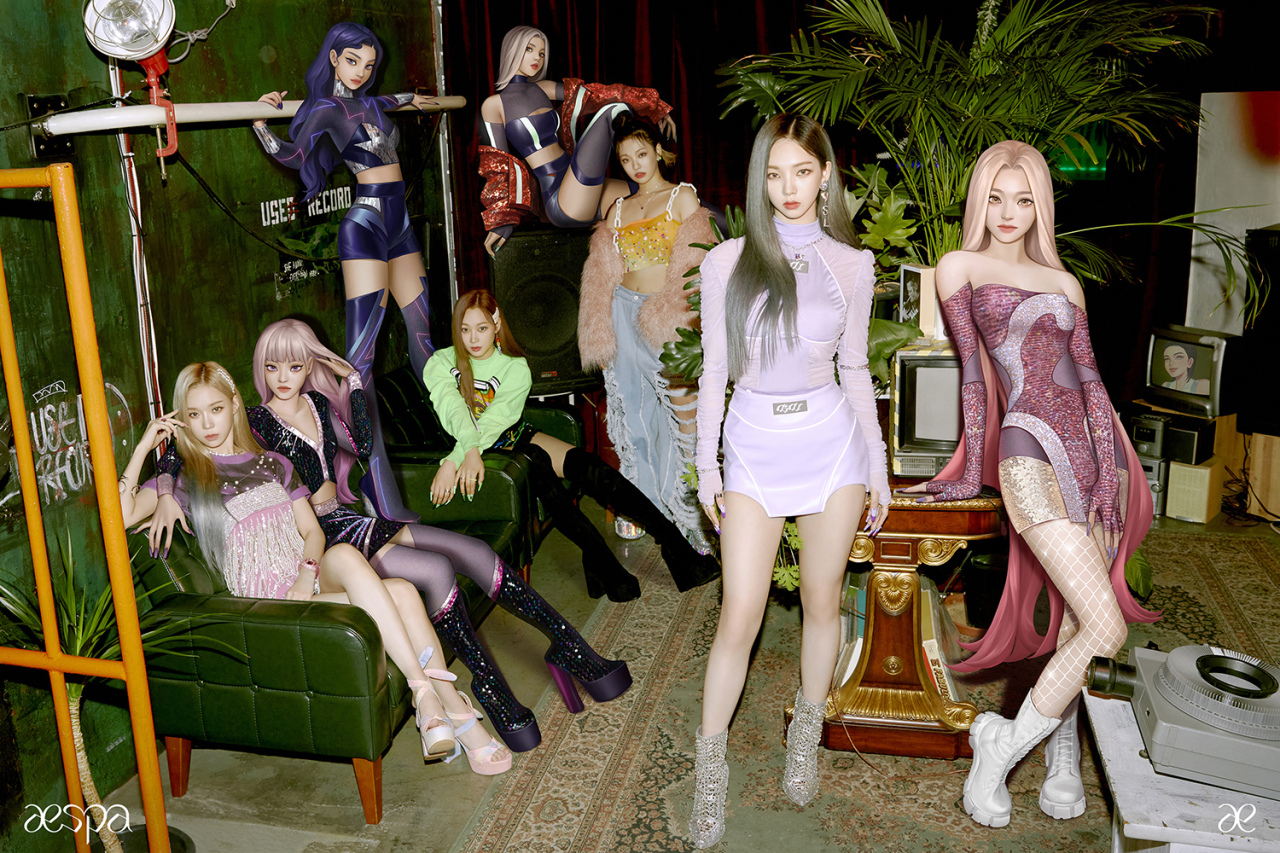[Herald Interview] Why K-pop juggernaut Hybe invested millions into AI sound startup Supertone
Supertone foresees changes, new possibilities in music business with AI sound
By Choi Ji-wonPublished : April 14, 2021 - 10:05

In February, Hybe, the new name for megahit K-pop group BTS’ label Big Hit Entertainment, invested a hefty 4 billion won ($3.6 million) in artificial intelligence sound company Supertone. One of the first major moves taken by the K-pop powerhouse since going public in October 2020, the investment shed light on the new possibilities that AI has opened up.
Supertone’s technology is about creating hyper-realistic voice that can sing. Simply put, Supertone’s system clones and synthesizes sounds. Their system can learn the voice of a human -- and do that faster than any other existing system -- and, taking a step further, synthesize what it’s learned to create a whole new sound that is almost indistinguishable from real voices.
The AI startup has been a significant game changer in the entertainment industry recently, especially with the outbreak of COVID-19. When their groundbreaking technology was made public last year, companies from all around the world came rushing in to negotiate partnership, and Hybe was among them.
“The offline music business has been completely hampered due to the COVID-19, with all the concerts and live performances were moved to online. But in this process, people realized the gap between ‘real’ and ‘almost real’ was almost insignificant in the online environment, opening up new business opportunities,” Supertone’s co-founder and chief operating officer Choi Hee-doo said during an interview with The Korea Herald in late March.
The interview, also attended by Supertone’s CEO Lee Kyo-gu, took place at Pangyo 2nd Techno Valley, a government-formed startup complex in Panggyo, Gyeonggi Province, where Supertone is based.
AI voice delivering emotions
The technology of voice synthesis may not be something new, with AI voice becoming the center of new business within entertainment industry.
Last year, K-pop powerhouse S.M. Entertainment teamed up with SK Telecom to launch AI speakers that feature voices of members of K-pop groups Red Velvet and NCT. In February, Game company NCSoft started a virtual call service on their fan community platform Universe through which fans can engage in conversations with the AI voices of their favorite idols.
But Supertone has taken it to another level. The key in Supertone’s singing voice synthesis technology, Choi stressed, is the illustration of emotions. According to Choi, they have overcome the limit of “uncanny valley,” which refers to the dip of positive emotion when seeing an object or robot that resembles humans beyond a certain point.

In February, the company also made headlines for bringing back the voice of a late South Korean singer Kim Kwang-seok during a TV program. In the show, Supertone’s software system also learned the voice of musical actress Ock Joo-hyun on the spot and reproduced her voice, not copying, but singing independently with the mimicked voice.
New opportunities in virtual entertainment
The K-pop industry has seen a surge of innovation in immersive fan experiences, especially since the pandemic began. S.M. and JYP were fast to team up to launch virtual concert series “Beyond Live” through Naver’s streaming platform V Live, while Hybe ferociously expanded its mobile fan community Weverse last year. Earlier this year, Hybe integrated V Live into Weverse, heralding the start of an umbrella K-pop fan community. Fan meetups were also moved online, prompting Naver’s avatar platform Zepeto to win investment from Hybe and YG Entertainment.
“The barriers that existed within the traditional entertainment industry are breaking fast. Companies that used to provide only the platforms are producing their own content, jumping into the competition. So how realistically and smoothly such content can be realized through visual and audio technologies in the virtual environment is more important than ever,” Choi said.
“One of the possibilities would be personalized concerts for fans. While three-dimensional audio, dynamic screens are few technologies currently incorporated to virtual livestreamed concerts, our technology will enable more personalized content through the mobile platform,” Supertone’s co-founder and CEO Lee Kyo-gu said.
For instance, the technology would enable audiences to hear the artist call out their name during virtual concerts, perhaps singing “Happy Birthday” for them, whereas overseas fans will be able to listen to exact K-pop song in the original artist’s voice but in their language.
Supertone’s technology also goes in line with the new trend of “digital artists,” who exist only in virtual space. Entertainment and gaming firms, including Supertone’s main partners, have introduced such virtual artists, including Riot Games’ virtual idols K/DA and S.M. Entertainment’s aespa, a hybrid girl group consisting of real and virtual members.

“While we have real singers singing behind these characters right now, with our system, we can produce a completely new voice that matches these virtual characters’ appearances by mixing several artists’ voices,” Lee explained.
Moreover, AI voices are not only expected to expand opportunities, but also relieve the companies and artists of the risk they hold. With the ever-rising popularity of K-pop artists, the risk they face with unexpected accidents is immense. Although not replaceable, the synthesized voice may be an effective solution in face of such risk.
Creative intelligence for musicians
Supertone is a spin-off startup founded by members of music and audio research group of Seoul National university’s school of convergence science and technology. Led by professor Lee Kyo-gu, who have devoted all his time into audio AI machine learning, Supertone was launched last year with the aims of commercializing the research group’s technology.
While the company received the spotlight for their partnership with Hybe, Supertone’s technology is nonetheless for individual artists, undoubtedly as all members of the 11-member startup are fervent musicians themselves.
“We’re all people who love music, and the fundamental goal was to provide a solution that artists can utilize in their creation. South Korea has seen efforts to invent vocaloids -- digital singers -- and related technologies since mid-2000s, but still most of the equipment used in studios are foreign brands,” Lee said.
While some singers have expressed concerns that they may lose their places to AI voices, Supertone is already engaged in projects with not only producers but also singers who are willing to expand their capacity using the tool. For instance, a popular Korean singer-songwriter well known for his unique voice, also actively producing music with other artists, have suggested swapping his voice to a female voice.
“What we’re seeking to do mainly is creating either new business with originally existing voices or a new voice itself. So the focus is not competing with existing artists and labels but cooperating with them,” Choi said.
The company also acknowledges the potential dangers of replicating human voices, Choi said.
“Our initial intention was to make a program for individual musicians, but we realized it is too prone to be used in illegal acts. So we naturally came to seek cooperation with companies that can control their use. We were knocking on the doors of small labels first when BigHit reached out to us.”
For rightful use of their technology, Supertone has established their own set of ethics which can be checked out on their website.
“We introduce ourselves as a company that makes an instrument. Our software is an instrument for artists. For instance, a synthesizer is an instrument that simply makes electronic audio signals. Musicians played with this machine according to their own purposes and this led to sounds that could be incorporated into music. Artists are people who can make creative use of instruments to produce music, and we hope that Supertone’s technology can be used in maximizing their own creativity,” Choi said.
By Choi Ji-won (jwc@heraldcorp.com)








![[KH Explains] How should Korea adjust its trade defenses against Chinese EVs?](http://res.heraldm.com/phpwas/restmb_idxmake.php?idx=644&simg=/content/image/2024/04/15/20240415050562_0.jpg&u=20240415144419)











![[Today’s K-pop] Stray Kids to return soon: report](http://res.heraldm.com/phpwas/restmb_idxmake.php?idx=642&simg=/content/image/2024/04/16/20240416050713_0.jpg&u=)